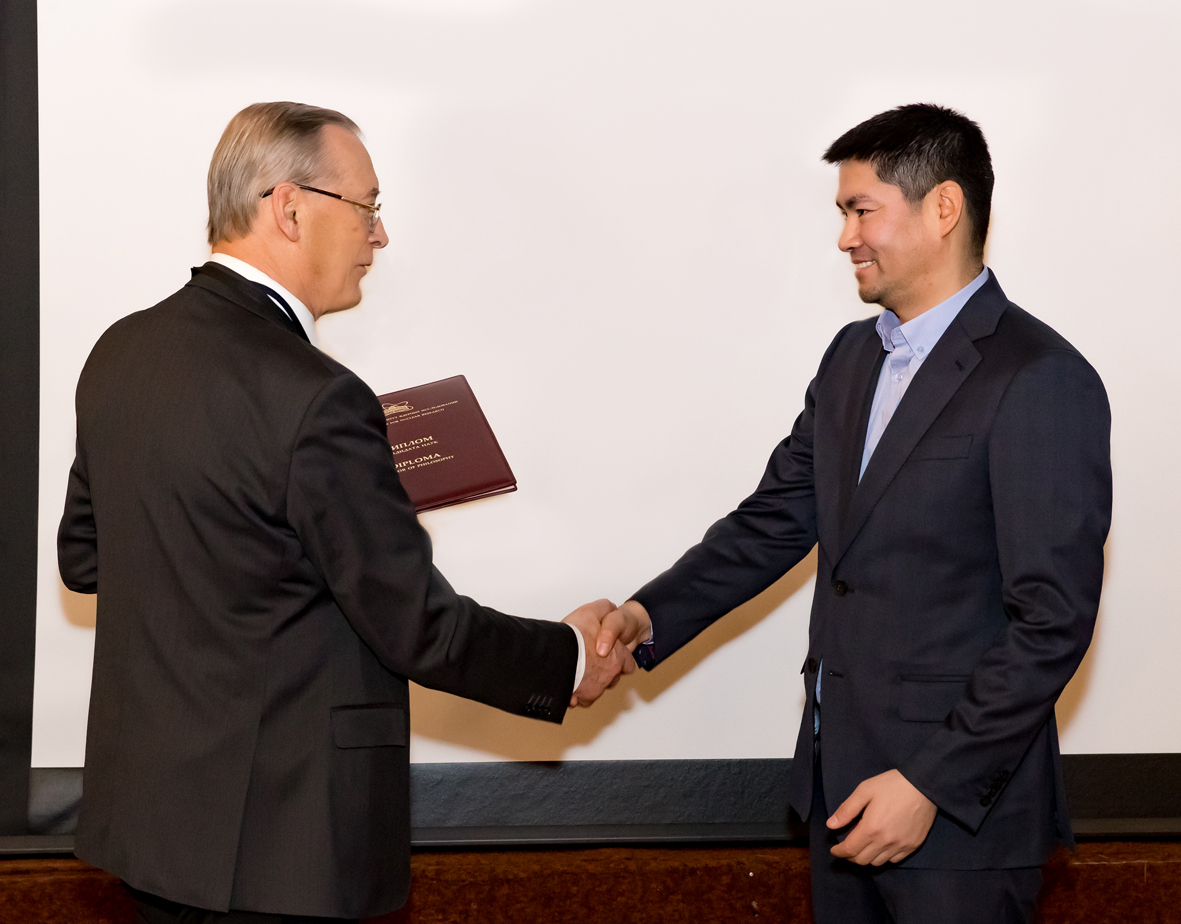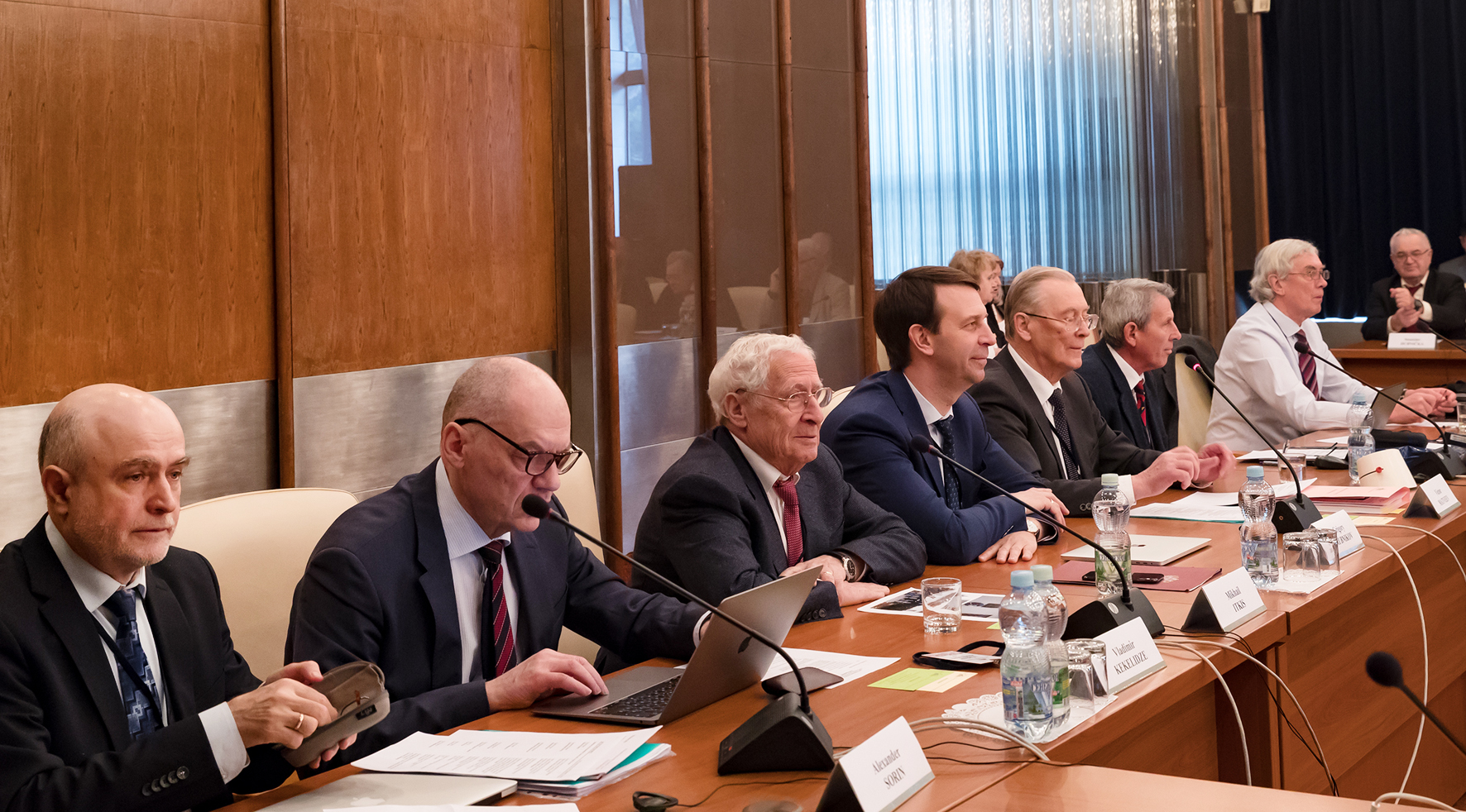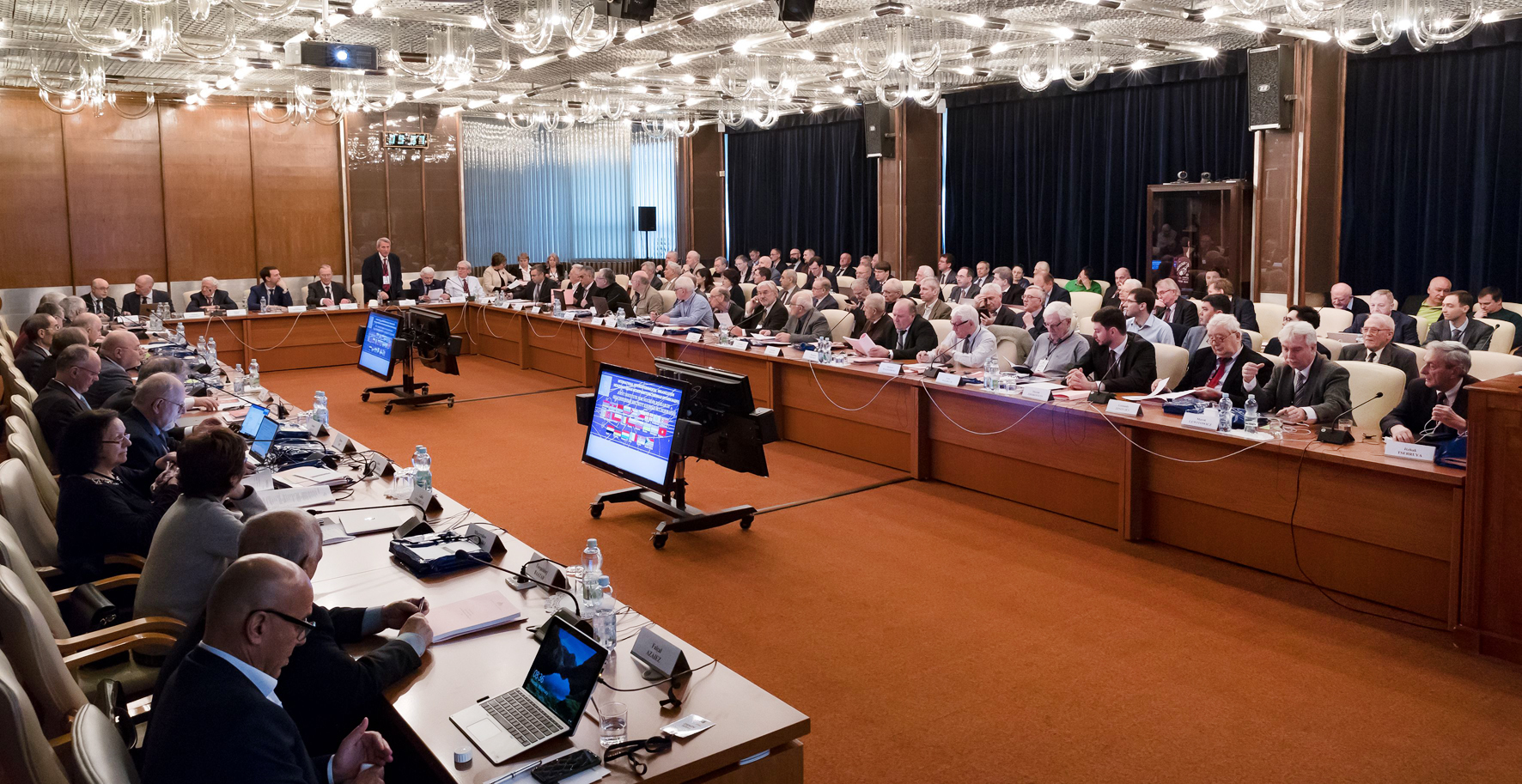Future-oriented decisions
News, 27 February 2020
The 127th session of the JINR Scientific Council was held in the International Conference Hall on 20 – 21 February 2020.
To get acquianted with the Resolution of the 127th session of the Scientific Council
JINR Director Academician V. A. Matveev made the report on the Institute’s activities since the previous session of the Scientific Council. In his report, the Director paid much attention to the milestones of the November (2019) session of the Committee of Plenipotentiary Representatives of the Governments of the JINR Member States, as well as other events in the JINR life. Participants of the session highly evaluated work of the international team of the Institute in the mentioned period, and especially highlighted the success achieved in the implementation of the JINR mega-projects.
The progress towards implementation of the Seven-Year Plan for the JINR Development for 2017-2023 was at the top of the agenda. Reports on major sections of the Plan and proposals for its adjustment for the next four years were made by JINR Vice-Directors V. D. Kekelidze (NICA project), R. Lednický (particle physics and high-energy heavy-ion physics), M. G. Itkis (nuclear physics), and B. Yu. Sharkov (condensed matter physics). The reports were lively discussed at the session.
Member of the Scientific Council Professor M. Spiro (France) reported on the decision of the 40th UNESCO session to proclaim the year 2022 the International Year of Basic Sciences for Development. The aim of the campaign is to highlight the important role that basic sciences play in the understanding of major societal and planetary challenges. The International Year of Basic Sciences will also provide a focus on the continuous assessment of the central role of basic sciences in people’s lives. This was a subject of numerous speeches by leaders of the largest scientific unions at the closing ceremony of the International Year of the Periodic Table in Tokyo. Several unions will draft the application for the Year of Basic Sciences, including the International Union of Pure and Applied Physics. Participants of the session thanked the reporter and noted that the Joint Institute for Nuclear Researcher should take an active part in preparing and holding such a large-scale and meaningful event.
The recommendations of the programme advisory committees adopted at the meetings in January and February 2020 were presented to the members of the Scientific Council by their chairpersons I. Tserruya, M. Lewitowicz and D. L. Nagy.
The elections of the director of the Laboratory of Nuclear Reactions and the endorsement of appointments of the LRB deputy directors were held at the session. Doctor of Physics and Mathematics Sergey Ivanovich Sidorchuk was elected FLNR Director. Doctor of Biology Alla Vladimirovna Boreyko and Doctor of Physics and Mathematics Alexey Vladimirovich Chizhov became LBR Deputy Directors.
The members of the Scientific Council considered the amendments proposed to the Regulation for the election of directors and for the endorsed appointment of deputy directors of the JINR Laboratories. On behalf of the working group represented by R. Tsenov, M. Waligόrski, I. Wilhelm, Head of the group C. Borcea made a presentation.
One of the central topics in the agenda of the session was the discussion of the Draft Strategic Plan for the long-term development of JINR that was introduced to the Council’s members by Chairman of the International Working Group for the drafting of the document Academician V. A. Matveev and Coordinator of the working group Academician B. Yu. Sharkov. Answering questions of journalists, JINR Director said the following:
“The 127th session of the Scientific Council is distinguished by a very intensive and significant programme. The agenda of the session included an extensive range of important issues of JINR development. Of course, we discussed in detail the present state of our mega-projects, namely NICA, the Baikal deep underwater neutrino telescope, the supercomputer “Govorun”, the Superheavy Element Factory. These are extremely significant world-level projects that have already passed the development stage and have become real facilities.
We face yet another important task of the further development of our Institute. Although we are now at the equator of the Seven-Year Plan, we should think about what we would like the Institute to be in the nearest future in advance. This preparation is a significant moment in our life. It requires deep elaboration at all the levels, starting from scientific issues considered by scientists and specialists in each laboratory, in each key scientific field. We should be aware of the competitiveness of our scientific programmes, the extent of their integration into international scientific projects. This is the essence of the activities of our international Institute. We exist to solve the challenges world science faces. This is the value of the result we obtain. It serves all the Member States, and, of course, Russia in the territory of which the Institute is located and from which the Institute gains the maximum possible support.
It is an exciting but challenging task. It is necessary to combine the interests of numerous fields and at the same time take into account the interests of the Member States. Our Institute is multidisciplinary, so we should find opportunities for the use of obtained results in all the fields of fundamental studies for the benefit of science development in the Member States. Otherwise, they may lose interest in our programmes, even if they are advanced. And an event organized just before the session of the Scientific Council played an important role in drafting the Plan of the strategic view of our future. It was an international symposium dedicated to challenges and tendencies of the strategic development of world science in the fields of fundamental physics.
Nowadays, the whole world and, first of all, Europe, work on the development strategy of fundamental physics, including particle physics, neutrino physics, cosmology… We should participate in this programme. Where is our place? Where is what we can achieve? How will it influence the interests of the world and world science? At the symposium, we considered numerous reports; they created a kind of a landscape. We are supposed to see already existing elements or elements that will become our tasks. The symposium played such a role, and it is a pleasure to note that it was dedicated to a prominent date in the life of the chief coordinator of this programme Boris Yurievich Sharkov. We will sum up the results of this work at the session of the Scientific Council. And we should be ready to present them to the Committee of Plenipotentiary Representatives of the Governments of the JINR Member States in March.
Moreover, the present session of the Scientific Council is interesting because it plays an important, I would say, a crucial role in the development of the Institute. Decisions we are going to make today involve the concentration of everything: intellect, interests, attention and the desire to combine interests of fundamental science with interests of the Member States. We should understand that the Institute will live long only if we train properly young generation. It is necessary to involve future young scientists and specialists starting from the school stage, or even earlier. So, this is a rich programme of actions. I should also say about our colleagues, about those who listen to us, who ask questions and comment on reports. It is elite of world science! And it is also a guarantee of the Institute’s authority.
 Diploma #1 dated 2 December 2019 of awarding the academic degree of Doctor of Philosophy (PhD) in Physics and Mathematics to Tsolmon Tsogtsaikhan.
Diploma #1 dated 2 December 2019 of awarding the academic degree of Doctor of Philosophy (PhD) in Physics and Mathematics to Tsolmon Tsogtsaikhan.
***
According to the PAC recommendations, young scientists A. S. Sheshukova, A. A. Kuznetsova, I. Zinicovscaia presented their reports at the session.
Participants considered the jury’s recommendations on the award of the N. Bogoliubov Prize, B. Pontecorvo Prize and the JINR annual prizes for best papers in the fields of scientific research, instruments and methods, and applied research.
The N. Bogoliubov Prize was awarded to:
D. I. Kazakov (JINR) for his outstanding contribution to the development of quantum field theory, the renormalization group theory revealing the renormalization properties of supersymmetric field theories, for pioneering work on multi-loop computing in quantum field theory;
Dam Thanh Son (Kadanoff Centre for Theoretical Physics, Chicago University, the USA) for the achievements in the fields of quantum chromodynamics, applications of string theory and the duality between the gauge field theory and gravity affecting the main issues of strongly interacting systems of numerous bodies, for his pioneering work on transport coefficients, such as viscosity and conductivity, and on strongly related three-dimensional gauge theories.
The B. Pontecorvo Prize was awarded to F. Gianotti (CERN) for outstanding contribution to experimental studies of fundamental interactions and the discovery of the Higgs boson.
Evgeny Molchanov, JINR Weekly Newspaper
Photos by Elena Puzaynina

